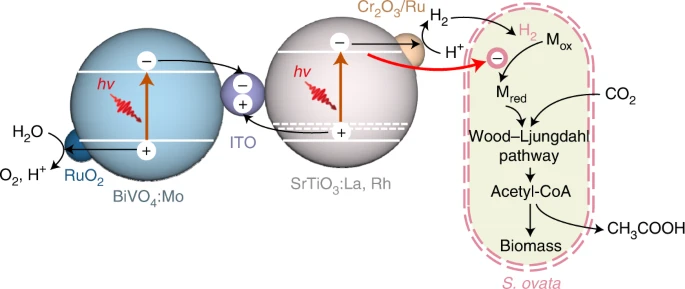Science Daily August 3, 2022
Researchers in the UK developed a chemical process that converts sunlight, water and carbon dioxide into acetate and oxygen to produce high-value fuels and chemicals powered by renewable energy. As part of the process, they grew CO2-fixing acetogenic bacterium Sporomusa ovata on a scalable and cost-effective photocatalyst sheet consisting of a pair of particulate semiconductors. The system effectively produces acetate and oxygen using only sunlight, CO2 and H2O, achieving a solar-to-acetate conversion efficiency of 0.7% at ambient conditions (298 K, 1 atm). The photocatalyst sheet oxidizes water to O2 and provides electrons and hydrogen to S. ovata for the selective synthesis of CH3COO– from CO2. According to the researchers their work curtails the rise in atmospheric CO2 levels, secure much-needed green energy supplies and alleviate the global dependence on fossil fuels…read more. TECHNICAL ARTICLE

Abstract. Credit: Nature Catalysis volume 5, pages633–641 (2022)